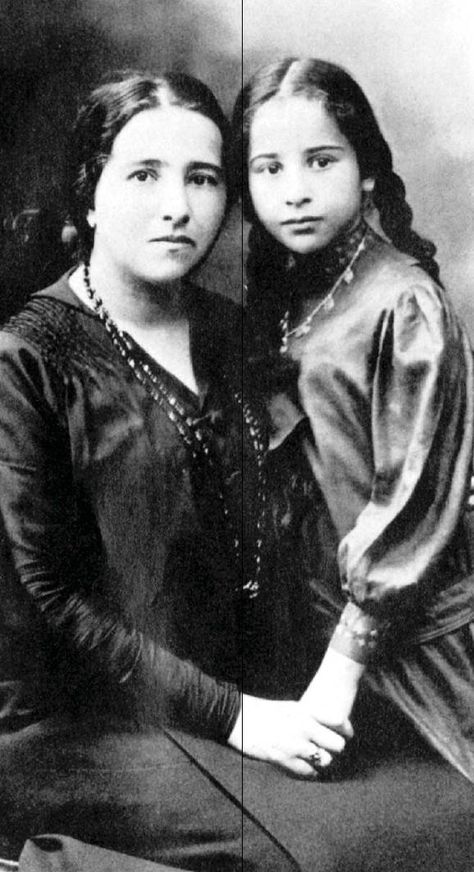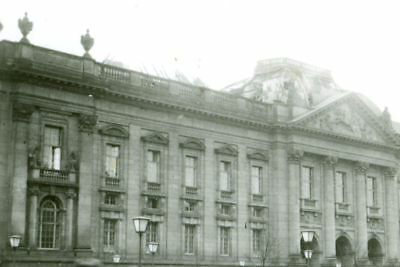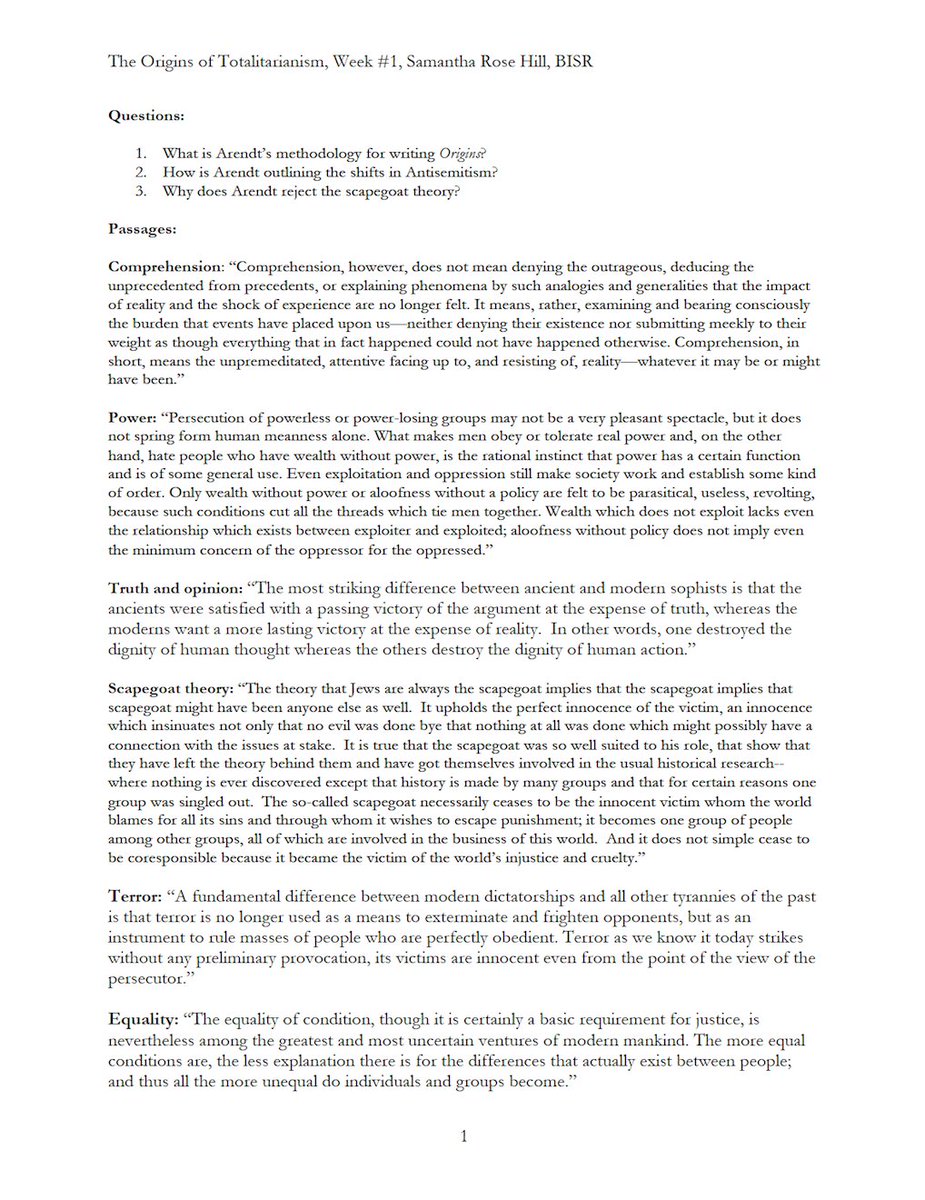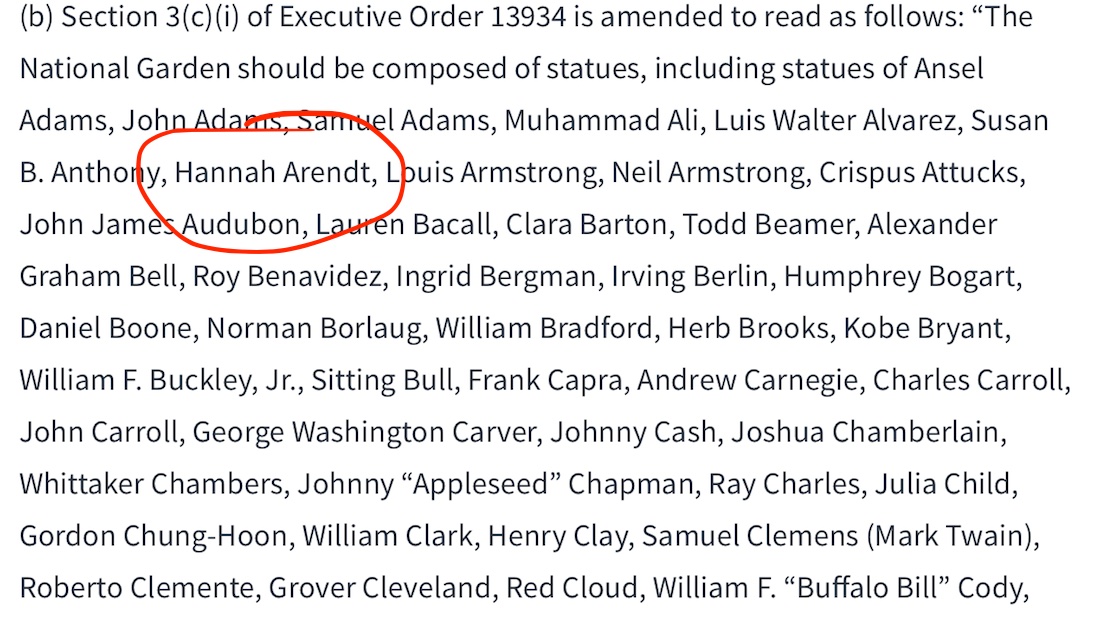Hannah Arendt and her mother Martha Sara Cohn.
Martha was born in Königsberg on May 28, 1874. Her father Jacob Cohn had fled Russia in 1852 to escape Tsar Nikolaus. She was trained in classical music and French, and was a committed social democrat.
Martha was born in Königsberg on May 28, 1874. Her father Jacob Cohn had fled Russia in 1852 to escape Tsar Nikolaus. She was trained in classical music and French, and was a committed social democrat.

Martha Cohn married Paul Arendt in April 1902. She knew he had contracted syphilis in his youth, and it was in remission when they decided to have Hannah Arendt in 1906. But by the time Arendt was born, he was in steady decline. He died on October 10, 1913. 



Martha was remarried to Martin Beerwald in February 1920. Beerwald was a forty-six year-old widowed businessman, raising two daughters on his own, Eva and Clara. Hannah did not get along with her step sisters. 



The first time Hannah Arendt encountered antisemitism on the playground, her mother taught her that "When one is attacked as a Jew, one must defend oneself as a Jew." In her 1964 interview Arendt tells Gaus, her question in exile was: "What can I specifically do as a Jew?" 

In 1933, after the burning of the Reichstag, Martha moved in with Arendt on Opitzstrasse in Berlin. After Bertolt Brecht's address book was confiscated by the Gestapo. They worked together using Martha's networks to help communists escape.
In the spring of 1933, Martha and Arendt were arrested by the Gestapo on their way to lunch. Arendt had been collecting antisemitic propaganda in the Prussian State Library. They released Martha, but held Arendt. After 8 days they let her go and they fled together the next day. 

They made their way through the Erzgebirge Mountains, where Leftists had organized a network of border stations to help refugees escape. Arendt and Martha were directed to Karlsbad, where a family owned a house with a front door in Germany and backdoor in Czechoslovakia.
After a brief stay in Prague Arendt and Martha left for Geneva to meet up with one of Martha’s friends, Martha Mundt. Mundt worked for the League of Nations and hired Arendt to work for the Labor Department in the bureau of international travel as a secretary.
But Arendt and Martha didn't want to stay in Geneva. Arendt's husband Anders and her friends had gone to Paris. After a few months, she left to join them and Martha returned to Königsberg. In the spring of 1939, Arendt sent a friend to Königsberg to help her mother move to Paris. 

Martha filed her paperwork for emigration in April 1939 and was granted a 3 month visa. She was required to surrender all her items of value, except for a knife, fork, tablespoon, teaspoon, personal wristwatch, and wedding rings. Martha arrived in France on April 25th, 1939. 

In June 1941 the US State Department tightened its entry policy, and of the 1,137 names submitted, only 238 people received visas. Arendt and Blücher received 2 of them. Martha’s visa didn’t arrive until May. Arendt had a friend look after her in Marseilles until she could leave. 



Martha arrived in New York a few weeks after Arendt and Blücher on June 21, 1941 on the S.S. Muzinho and moved into the second room Arendt and Blücher had rented at 317 West 9th Street with their stipend from the Zionist Organization of America. Arendt wanted her mother near her. 

But after 7 difficult years living together, trying to set up life in the States, Martha decided to go live in London with her step daughter Eva. Martha didn't get along with Arendt's husband Heinrich Blücher. Her bourgeois sensibility clashed with his working class background.
Arendt spent the summer of 1948 in New Hampshire finishing Origins. She returned to NY to help her mother move and see her off. When Arendt returned to New Hampshire, she received word that Martha had died on board the Queen Mary on July 27th from a serious asthma attack. 

After her death Arendt wrote to Blücher: "Naturally, I'm simultaneously sad & relieved at the same time. It's quite possible that all this was the biggest mistake of my life. I couldn't have simply turned down her request, because it came from a love and a wholeheartedness..."
The request was that Arendt stay as close to her as possible. Which tried to do for most of her life.
Happy #MothersDay
📸Martha's Kinderbuch

Happy #MothersDay
📸Martha's Kinderbuch


• • •
Missing some Tweet in this thread? You can try to
force a refresh














